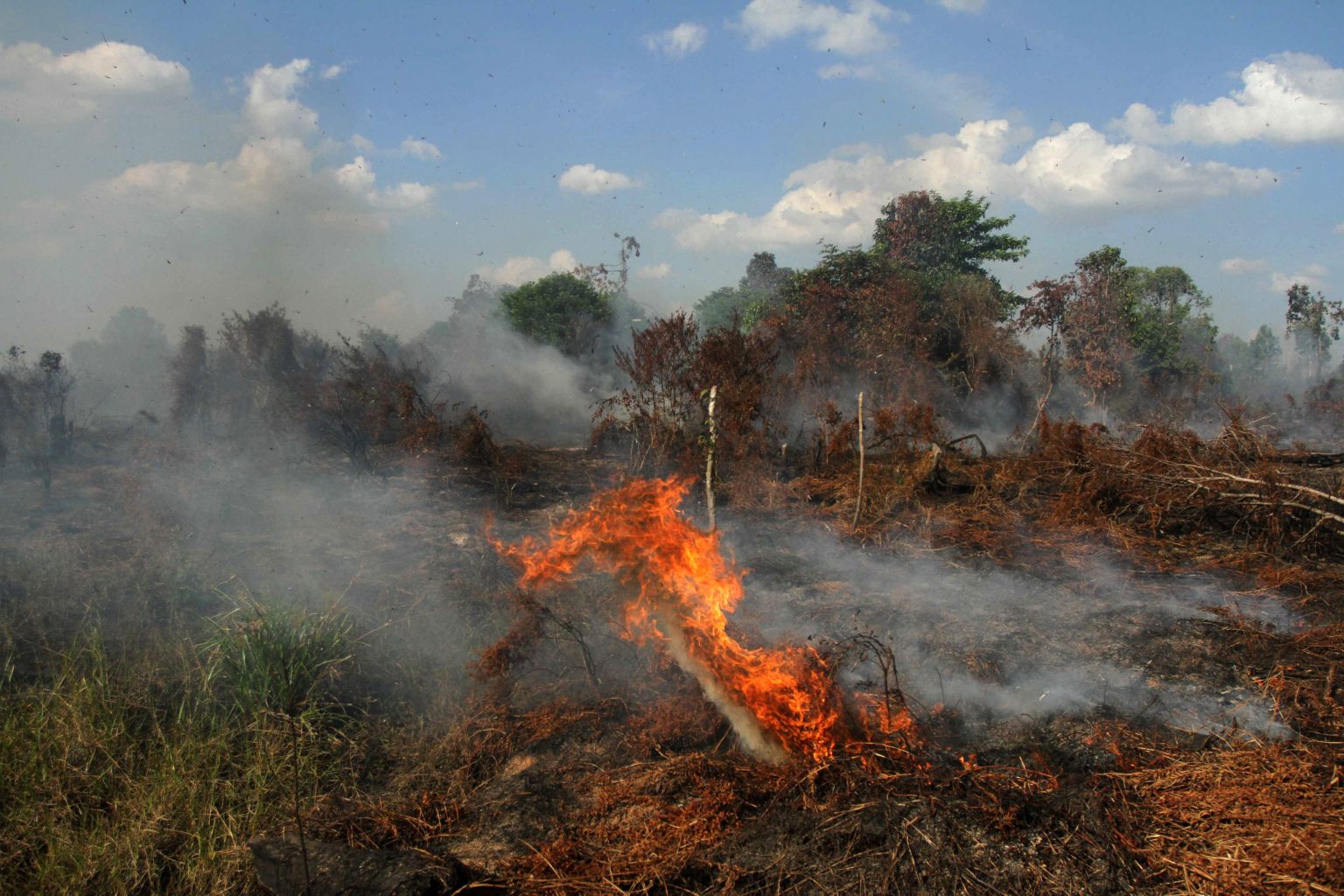Desperately fighting fires: The Jakarta Post
Sign up now: Get insights on Asia's fast-moving developments

Fires burn peatland area in Kampar, Riau province, Indonesia, on July 24, 2017.
PHOTO: REUTERS
In its editorial on Aug 11, the paper calls for stronger measures to counter the continuing phenomenon of forest fires.
JAKARTA (The Jakarta Post/ANN) - For the umpteenth time fires have burned our forests and peatland, posing threats not only to people in the vicinity but also to our relationships with our neighbours because of the cross-border haze caused by the man-made disasters.
Unsurprisingly, President Joko "Jokowi" Widodo on Wednesday renewed his call for an end to the fires. He said he had ordered Coordinating Political, Legal and Security Affairs Minister Wiranto to gather regional heads, military and police commanders from across the country to devise a comprehensive and concerted plan to fight the fires.
Just three months after his inauguration as President in October 2014, Jokowi, in a show of impatience with the way the country had addressed the disasters, visited a hot spot in Riau.
Less than a year later he returned to forest fire-prone Sumatra in the aftermath of a peatland fire in South Sumatra.
His message after the two field trips was identical: law enforcement against perpetrators was the key to preventing the environmental calamity.
Jokowi's predecessors shared his grave concern about the country's failure and took actions to keep the fires from recurring.
We have to admit, however, that even after so many years our approach to combating forest and peatland fires has barely changed.
The President's order for strict law enforcement against forest burners has fallen on deaf ears as evident from the frequent halting of police investigations into forest fires implicating corporations and individuals, usually citing a lack of evidence.
In a few cases courts have found corporations guilty and sentenced them to hefty fines only for a higher court to overturn the conviction.
The inability of the police and prosecutors to convince courts of the criminal offenses in forest-fire cases on the one hand, and the judges' decisions to ignore incriminating evidence on the other, may not necessarily indicate bribery, but more their lack of knowledge and understanding about the 2009 Environment Law, which criminalises people who harm the environment.
As if to add insult to injury, the provisions in the Environment Law that stipulate criminalization of corporations responsible for forest fires are now being challenged at the Constitutional Court. Petitioners of the judicial review insist the law is unfair as it exempts local people from responsibility for forest fires out of respect for local tradition.
There should be no way for forest burners to escape justice because of the life-threatening impact of fires, not to mention the material losses from disrupted business and social activities that result from the disasters. Considering the wide-ranging consequences of forest and peatland fires, we have a solid reason to declare it an extraordinary crime akin to corruption or an act of terrorism.
Such a serious crime requires extraordinary treatment. It may not need to be translated into the formation of a taskforce, but we could learn from the spirit of the graft busters and counterterrorism forces.
The Jakarta Post is a member of The Straits Times media partner Asia News Network, an alliance of 23 media entities.


